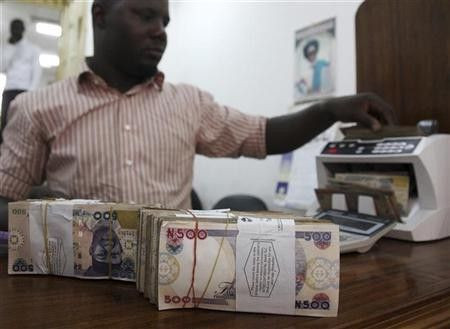Nigeria's Access Bank to buy rival Intercontinental

Nigeria's Access Bank said on Thursday it will spend 50 billion naira to acquire a 75 percent stake in rescued rival Intercontinental Bank and combine both firms' operations within 12 months of the merger.
Access Bank is the first of four lenders to announce plans on how it intends to integrate with a rescued bank after signing merger agreements in July, a move long-suffering shareholders hope marks the beginning of the end of the banking crisis.
Nigeria's Access Bank rose 2.33 percent to 5.70 naira, bucking a downward trend on the local bourse, which shed 1 percent.
Access chief executive, Aigboje Aig-Imokhuede told a conference call the combined Access Bank would become one of the top three lenders by assets in the country, developing a network of over 500 branches after the merger.
Access has critically analysed inorganic growth opportunities as they have arisen ... the transaction enhances our retail banking offering and extensively increases our distribution platform, Aig-Imokhuede said.
He said the capital injection will take Intercontinental over the regulatory 10 percent minimum capital adequacy levels.
Shareholders of both institutions will need to vote on the merger at the end of the month, he said. The combined entity will remain listed on the Nigerian Stock Exchange, he said, adding that he expected to complete the transaction by September 30.
Aig-Imokhuede said shareholders in Intercontinental Bank will own 10 percent of the merged entity, with AMCON, the government bad bank created to recapitalise nine rescued banks in 2009, getting 15 percent.
The dilution effect of the transaction on Access shareholders will be ... at best case 4 percent and at worst case 6 percent ... after the merger, he told a conference call with investors.
He said that Intercontinental shareholders would retain one share for every seven they own as part of a consolidation deal ahead of the merger.
Those who do not want to become Access shareholders would get a payout of 2.75 naira per seven shares, or per consolidated share, he said.
The central bank bailed out the nine lenders in 2009 for $4 billion because auditors deemed them to be so poorly capitalised that they posed a systemic risk to sub-Saharan Africa's second-largest economy.
The banks were poorly managed and were overexposed to the capital and oil markets during the global financial crisis.
AMCON said last month it expects five of the nine banks that were bailed out to call extraordinary general meetings by September 30, so shareholders can vote on recapitalisation deals signed with investors.
Three of the other banks rescued in 2009 were nationalised this month after they failed to show an ability to recapitalise.
© Copyright Thomson Reuters 2024. All rights reserved.




















